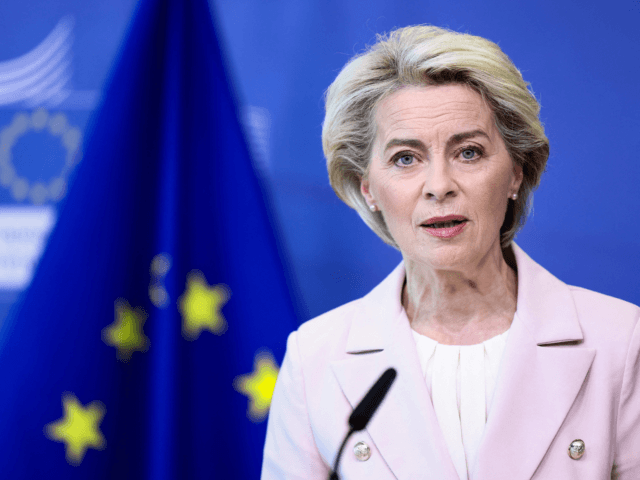The European Union has proposed plans to impose an embargo on Russian oil by the end of the year as a part of its sixth round of sanctions levied against Moscow since the start of the full-scale invasion of Ukraine in February.
Speaking from Strasbourg on Wednesday, EU Council President Ursual von der Leyen said that the bloc is intending on imposing more sanctions against Russia, including on individuals associated with the alleged war crimes in Bucha, a top bank, three Russian broadcasters, and ultimately imposing a ban on oil from Russia.
“It will not be easy,” von der Leyen said. “Some Member States are strongly dependent on Russian oil. But we simply have to work on it. We now propose a ban on Russian oil. This will be a complete import ban on all Russian oil, seaborne and pipeline, crude and refined.
“We will make sure that we phase out Russian oil in an orderly fashion, in a way that allows us and our partners to secure alternative supply routes and minimises the impact on global markets. This is why we will phase out Russian supply of crude oil within six months and refined products by the end of the year.”
The top eurocrat said that the aim of the sanctions will be to prevent the Russian economy from being able to “diversify and modernise”. Yet, despite the EU, UK and United States all imposing unprecedented sanctions against Russia, the ruble currency has now rebounded to pre-invasion levels and indeed hit a two-year high against the dollar on Wednesday.
While imposing sanctions, the EU has also been perceived to be funding Russia’s war effort, with the bloc purchasing over 70 per cent of all Russian energy exports since the full-scale invasion of Ukraine began. The purchases have amounted to a billion dollars a day.
Though Germany — the largest importer in Europe of Russian energy — has agreed to back the embargo on Russian oil, claiming that it believes it can transition to alternatives by the end of the Summer, others within the bloc, namely Hungary and Slovakia are far more reliant on oil exports from Russia and therefore are unlikely to support the measure.
In order to prevent a veto from either of the two Eastern European nations, the bloc has been reported to be considering an exemption or delay on the oil embargo for Hungary and Slovakia, however, such a deal has not been announced or agreed to.
Upon word of the announcement from the EU, the price of crude oil jumped by 3 per cent on the global market. The EU has so far made no firm statements on the banning of Russian natural gas, which is a key component of powering European economies, with Germany, in particular, being heavily reliant.
In addition to the potential ban on oil, President Ursula von der Leyen said that the bloc is intending on adding Russia’s largest bank, Sberbank, as well as two other major banks to its list of lenders prohibited from the international SWIFT payment system.
“By that, we hit banks that are systemically critical to the Russian financial system and Putin’s ability to wage destruction. This will solidify the complete isolation of the Russian financial sector from the global system,” she said.
The EU will also look to block three more Russian state-owned broadcasters, after similar moves against RT and Sputnik News. The EU chief said that they will be prohibited from airing in any form in Europe, including on cable, satellite tv, the internet, or smartphone apps, justifying the censorious move by saying: “We should not give them a stage anymore to spread these lies.”
Finally, von der Leyen said that the bloc will impose personal sanctions on “high-ranking military officers and other individuals who committed war crimes in Bucha and who are responsible for the inhuman siege of the city of Mariupol”.
Follow Kurt Zindulka on Twitter here @KurtZindulka

COMMENTS
Please let us know if you're having issues with commenting.